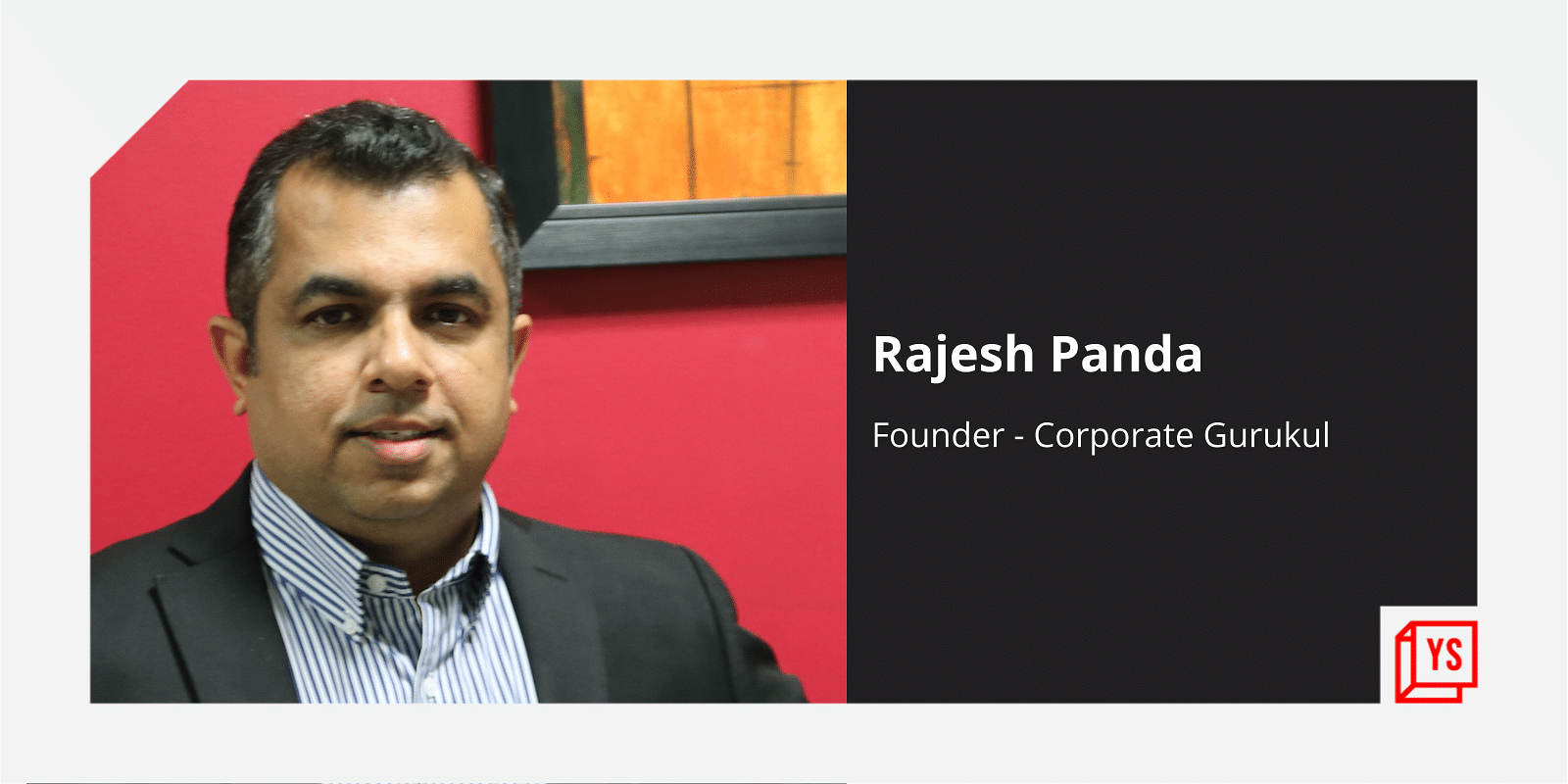Corporate Gurukul, a global edtech venture headquartered in Singapore, believes that offline teaching is the best option for both tutors and students. As a result, when the COVID-19 pandemic broke out in 2020, business came to a screeching halt as the company did not have any online offerings.
“We had to pivot to the online model as our revenues had come down by one-fifth,” says Rajesh Panda, Founder and CEO of Corporate Gurukul, in a conversation with YS, adding that business has managed to bounce back to pre-COVID-19 levels.
He adds that the team does not believe in amassing as many students as possible and follows one motto — if you are the best, we will help you become better.
At present, Corporate Gurukul provides short-term upskilling courses and only targets students from top tier educational institutions — IITs, BITs or NITs — through partnerships with elite universities in Singapore. The focus is on ensuring students are better prepared for a corporate career or simply upskilling to be better equipped for higher studies.
Rajesh says, “We want our students to get ready for the corporate world through an experiential form of learning, which is relevant for society as a whole.”
Pandemic impact
Launching online meant getting all its teaching faculty and students onto a single platform, which could function across countries and cross-cultural, to suit multiple countries as the company looked to leverage it to expand its presence.
Rajesh says it was important for its partners and the students to adapt to this new model, adding that none of the lectures is recorded.
And it paid off.
“Before the pandemic, Corporate Gurukul was present in eight countries, but we have since expanded to 20 nations, including launching in the African continent.”
Since December 2021, the edtech venture has seen its students going back to offline learning, and Rajesh claims that revenues have tripled over the last three months.
He firmly believes that Corporate Gurukul will not shift completely online as students and universities still prefer the offline model and will look for a middle path — a hybrid model.
“Experience is a big part of education which is a four-step process of knowing, performing, practising, and reflecting,” remarks Rajesh.
Pivoting the business model
However, in 2007, when Corporate Gurukul was launched, it did not start with a focus on top tier colleges. In fact, it initially reached out to the bottom of the pyramid by upskilling school and college students in Orissa, Bihar, and West Bengal to increase their employability quotient through a partnership with IT major Infosys.
By 2014, the company had trained around 1.25 lakh students in this model, claims the founder.
“It was all about training life and soft skills to these students,” says Rajesh.
Around 2013-14, Corporate Gurukul decided to change its focus, targeting students from top tier engineering and management institutes. This also included schools as Corporate Gurukul wanted to pursue students in Classes 11 and 12.
Rajesh says, “From charging students less than Rs 1,000, we moved to a model where it cost Rs 2 lakh per student.”
To fulfil this goal, Corporate Gurukul formed partnerships with the National University of Singapore and Nanyang Technological University. Besides, it formed industry partnerships with Hewlett Packard Enterprise and Amazon.
As a result, Corporate Gurukul successfully expanded its reach from just the Indian market and became a more globalised company. It offers three types of courses — internships, research, and certifications — across artificial intelligence, machine learning, deep learning, Internet of Things, design thinking, sustainable engineering, entrepreneurship, etc.
The product team of Corporate Gurukul, in close association with the partner universities, creates various short-term programmes, with durations ranging between seven days and six months. Rajesh claims that around 90 percent of the curriculum is completely new and relevant to industry requirements. Upon completion of a course, each student receives a joint certificate from the university and the corporate.
He adds, “We have partnerships with over 70 universities in India and more than 150 schools in 20 countries across Asia.”
Despite the pivot, Corporate Gurukul’s objective remains the same — upskill students to help them get better opportunities, both in higher education and the job market.
According to Research and Markets, the global edtech market was valued at $254.80 billion in 2021 and is expected to reach $605.40 billion by 2027 growing at a CAGR of 15.52 percent. In terms of competition, the other players in this segment of upskilling are the likes of Emeritus, Hero Vired, Udemy, etc.
Future plans
Corporate Gurukul is now looking at expanding the market, which will mean venturing into the US and into other countries in Africa. It is also firming up partnerships with Stanford and Carnegie Mellon University, besides looking at similar tie-ups with Cambridge and Oxford.
Today, it has about 2,000 students graduating from its various courses every year and aims to grow this number to 5,000. However, it has strengthened its own screening process, and Rajesh claims that only one student out of every 35 applicants is selected.
“It is very easy for us to widen the cap to increase the intake of students but we will work only with the top universities,” says Rajesh.
Corporate Gurukul generates around 40 percent of its revenues from the Indian market while the rest from across the Middle East and Southeast Asia.
For Rajesh, it has been an emotional journey building this venture over the last 15 years without any external funding — banking on the fees from students and revenue sharing from its partner universities.
“Corporate Gurukul will continue with this model with a focus on cash flow and profits,” he signs off.










